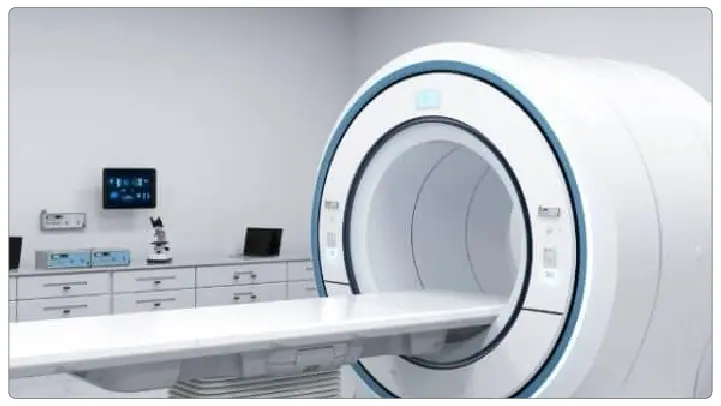Affordable MRI Scanners: New Tech Set to Revolutionize Medical Imaging Access
A fresh wave of optimism is sweeping through the healthcare technology sector following news that a new type of MRI scanner could soon make advanced imaging more affordable and widely accessible. Researchers at the University of Sheffield, working alongside GE HealthCare, have unveiled an approach that replaces bulky high-field scanners with smaller, more affordable low-field models enhanced by artificial intelligence.

The concept is straightforward yet revolutionary. To produce crystal-clear images, traditional MRI scanners use strong superconducting magnets and a lot of liquid helium. Patients frequently must travel great distances and wait on lengthy waiting lists because these machines are not only costly to install and maintain, but they are also grouped in large hospitals. The new project uses small energy-efficient low-field scanners, which is a different approach. To overcome the generally lower image quality associated with this technology, the team has developed AI software to improve the scans. This effectively bridges the gap and yields results comparable to those of high-field systems.
This could be a game-changer for the National Health Service in the United Kingdom. With yearly costs in the billions, respiratory conditions like asthma and COPD put a tremendous clinical and financial burden on the system. The new technology may help identify conditions earlier, alleviate hospital bottlenecks, and ultimately reduce long-term treatment costs by facilitating faster local access to high-quality scans. These scanners could be installed in community centers rather than just specialized hospitals, according to Professor Jim Wild of Sheffield's Insigneo Institute. This would allow communities to access quick and precise diagnostics without the logistical difficulties of the current system.
Simon McGuire, Zone President at GE HealthCare for Northern and Eastern Europe, emphasized that this initiative reflects a broader push to reimagine MRI technology, making it more sustainable, cost-effective, and accessible to those who need it. The shift not only reduces patient inconvenience but also lowers the environmental impact by cutting reliance on helium and high-energy infrastructure.
The project is part of a £149 million Prosperity Partnerships initiative launched in 2023, supported by funding from the UK's Engineering and Physical Sciences Research Council and Medical Research Council. The way that academia, government, and industry are working together to advance transformative healthcare solutions is demonstrated by this support.
The next milestone will be medical device trials with healthy volunteers, a crucial step toward regulatory approval and broader clinical adoption. If successful, experts believe the technology could pave the way for widespread deployment in community health centers across the UK and beyond.
This development aims to rewrite the economics and accessibility of advanced imaging, not just make machines cheaper. By fusing AI-powered software with low-field hardware, the Sheffield-GE partnership portends a time when MRI scans will be a commonplace procedure accessible to a greater number of patients rather than a limited resource.
New technology could make MRI scanners cost-effective and more accessible